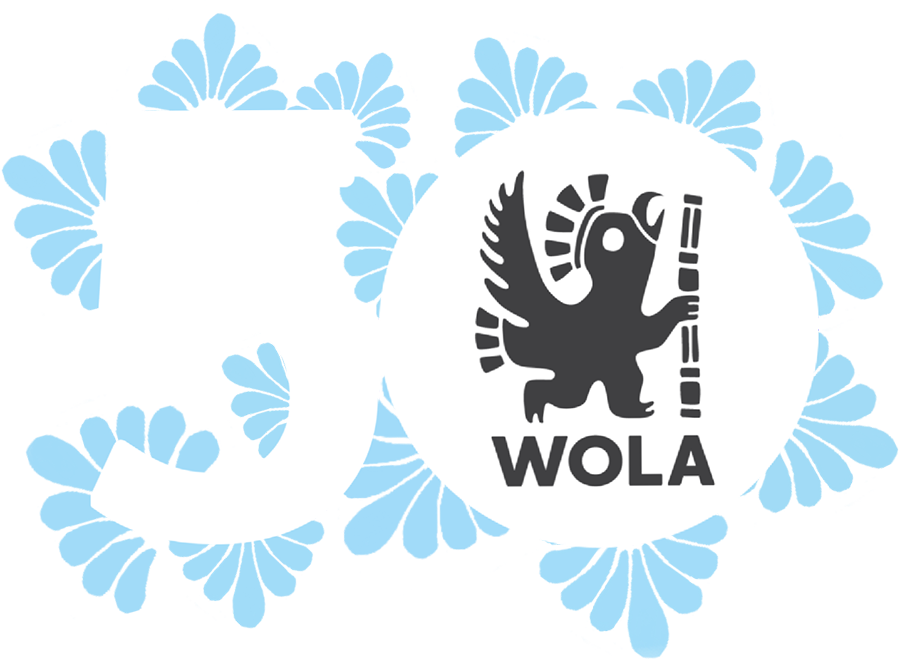Given the large volume of reports we have received from Colombia since the start of the national strike on April 28, we are releasing English-language information about these human rights violations in two parts.
According to Temblores’ GRITA platform, a total of 4,285 cases of police violence were registered between the morning of April 28 and the afternoon of June 16. These abuses include 1,468 victims of physical violence by the police, 30 cases of improper use of the Venom projectile weapon by the riot police (Escuadrón Móvil Antidisturbios, ESMAD), 1,832 protestors arbitrarily detained, 734 violent interventions by the police, 70 victims of eye injuries, 215 cases of police shooting firearms, 28 victims of sexual violence by the police, and 41 cases of persons suffering from respiratory problems due to the use of tear gas.
Temblores also registered 43 cases of homicides, with an additional 21 in the process of being verified. 6 cases are in process of clarification as to whether the perpetrator forms part of the police force. 4 cases are attributed to armed civilians with indications that state forces participated. 8 cases are in process of verification as to the scene and context in which they took place. 4 cases are in process of having the complaint verified.
Below find the cases brought to our attention in the past weeks:
State Security Forces Threaten Indigenous Participating in Protests (Cauca)
On May 22, the Inter-Ecclesial Commission for Justice and Peace (Comisión Intereclesial de Justicia y Paz, CIJP) shared two disturbing accounts of how state security forces threatened Nasa Indigenous participating in protests in the Cauca department. On May 20, three soldiers assigned to the Domingo Rico military battalion—who guard the Dantayaco well that belongs to the Gran Tierra Energy (GTE) company—stated in the presence of Nasa Indigenous guards, “the solution [to end the protests] is to bring in paramilitaries to finish everything.” On May 22, members of the anti-narcotics police, under the command of Lieutenant Colonel Hernández, entered the Caño Rarayaco River sector, where more than 300 people participating in the national strike were present. According to the CIJP, the uniformed officers intimidatingly and rudely demanded immediate passage to the blockade carried out by the demonstrators and took photographs. Lieutenant Colonel Hernandez insistently inquired about the communities present at the demonstration, and later told his officers to lay off. He then made a threat that instead they would later retaliate with forced eradication processes in Nasa territories. If this action is carried out, not only would it be illegal given it ignores processes of free and informed prior consultation, but it would also be a clear retaliation to the right to social protest.
Peaceful Protestors Harassed and Intimidated by Colombian Military (Putumayo)
On May 21, the Association of Indigenous Councils of Villagarzón, Putumayo (Asociación de Cabildos Indígenas del Municipio de Villagarzón Putumayo, ACIMVIP) decried the harassment and intimidation by the Colombian military against protestors gathering in the Costayaco oil zone operated by the Gran Tierra Energy (GTE) company. On May 13, peaceful protestors from Indigenous, Black, campesino, and youth communities mobilized for the national strike on the Puerto Asís-Mocoa road. On May 16, the peaceful protestors decided to block access to the oil zone operated by GTE, given the harm inflicted on communities by the mining and energy industries, and began the peaceful action on May 19. On May 21, despite the GTE claiming to understand the grievances expressed by the protesters, the President of the ACIMVIP received a phone call from the Commander of the Colombian Military’s 27th Brigade. The Commander threatened the ACIMVIP’s President and warned that if the blockade was not lifted, the military was authorized to use force and its weapons to disperse the protestors. Other demonstrators received similar threatening calls, causing them to fear for their lives. In its statement, the ACIMVIP urged the National Protection Unit (Unidad Nacional de Protección, UNP) to protect protestors and for government agencies such as the Attorney General and Ombudsman’s offices to monitor the situation and safeguard protestors’ rights. The ACIMVIP also called for the Office of the United Nations High Commissioner for Human Rights’ involvement to hold Colombian institutions accountable to their roles.
Volunteer Medic Attending to Injured Protestors Murdered (Valle del Cauca)
On May 24, unknown armed actors in a pick-up truck shot and murdered Armando Álvarez, a deputy manager of the ESE health network in eastern Cali, Valle del Cauca department. In the context of the protests related to the national strike, Álvarez managed medical attention for the injured protestors and also accompanied the families of the victims, which is why he was known as the “guardian angel” of the Resistance Port (Puerto Resistencia) sector. During the national strike, Cali has been the city most affected by state-sanctioned violence. Also, similar to what occurred with the Indigenous minga in Cali, strange vans have been observed on a daily basis and they are presumed to be part of a quasi-paramilitary dynamic aiming to suppress the social protests. Contagio Radio reported that at least three people linked to volunteer medical attention have denounced surveillance and threats against their lives. U.K.-based NGO Justice for Colombia also reported on the murder of volunteer medic Álvarez.
Rights Defending Opposition Senator’s Family Received Death Threat (Valle del Cauca)
On May 16, the wife of Democratic Pole Senator Alexander Lopez Maya received a telephone call from alleged paramilitaries informing her they know where she lives, her daily routine, where her child goes to school, and they were ordered to kill them. According to Senator Lopez, the paramilitaries claimed he “had already caused a lot of damage to the country and that the decision had already been made to make him pay for all the damage that he supposedly had done to Valle del Cauca and the country.” The paramilitaries warned his days and that of his family members were numbered. Senator Lopez, a former trade unionist and well-known defender of labor rights, human rights, victims, and the peace process has played a vital role in attempting to guarantee the safety and security of protestors and obtaining justice for abuses committed by the police and armed civilians who have openly fired at protestors. He is acting within his mandated role as Senator and the U.S. Congress should insist that Colombian authorities do their utmost to protect his and his family’s safety and to investigate and prosecute those responsible for these death threats.
Minister of Defense Stigmatizes Youth as Rioters and FARC Dissidents (Cauca)
On May 15, INDEPAZ rejected stigmatizing claims made by Minister of Defense Diego Molano that accused four young men of being FARC dissidents and culprits of the May 14 riot attacks against government buildings in Popayán, Cauca department. Three of the four accused men include José Daniel Gallego, a philosophy student leader from the University of Cauca who is involved in peacebuilding and LGBT+ collectives; Andrés Maíz Sánchez, a Nasa Indigenous from the CRIC’s Julumito Reserve who is a youth social leader that guides campesino, ethnic, and LGBT+ initiatives; and Andrés Duque, a social leader who carries out organizational and solidarity work in the neighborhoods of the city.
Minister Molano offered a reward of 50 million Colombian pesos for information about their alleged relationship with FARC dissident groups, as well as their alleged involvement in riots. INDEPAZ asserted that these accusations are in violation of due process procedures, which endanger the integrity and lives of the accused individuals. The designation of these young men as high-value targets essentially authorizes their capture and execution in the manner that is customary with military combat against the FARC’s dissidents. INDEPAZ condemned these reckless justice procedures and demanded full respect for the rights of the accused; Gallego, Sánchez, and Duque are well-known human rights defenders with whom INDEPAZ has collaborated with in various peacebuilding activities.
INDEPAZ also noted that no protest—even violent behavior by unarmed civilians— justify the actions of state agents who have used firearms and so-called non-lethal weapons to brutally harm and even kill civilians. For example, on May 14, the ESMAD murdered 23-year-old Sebastián Quintero Múnera with a so-called non-lethal projectile during protests in Popayán. The organization condemned the clear instances of damage to public property and aggressions against police officers, however, it placed greater emphasis on the arbitrary and disproportionate use of force by state agents, which it considers as the main instigator of terror and violence in the midst of protests taking place in Popayán. INDEPAZ called on human rights organizations, the United Nations Office for Human Rights in Colombia, the Inter-American Commission on Human Rights (IACHR), and the entire international community to denounce the situation in Popayán and take action.
Indigenous en Route to Protests Attacked by Armed Civilians with Alleged Support by State Security Forces (Valle del Cauca)
On May 9, the ACIN heavily condemned attacks by armed civilians in Jamundí, Valle del Cauca department against Indigenous persons who were on their way to Cali to participate in protests related to the national strike. In the morning of May 9, the Mayor of Cali Jorge Iván Ospina made discriminatory remarks against the Indigenous saying they are not from the region and blaming them for the city’s unrest. Such comments further contribute to the stigmatization of and lethal violence against Indigenous peoples. The armed civilians, dressed in white and travelling in vans, were stationed at several points along the road between Jamundí and Cali and refused to allow the Indigenous minga—which was carrying food and humanitarian supplies for peaceful protestors—entry into the city. Although the Indigenous made attempts to dialogue with the armed civilians, who claimed to be residents of the area and against the national strike, they continued to threaten the Indigenous and even detained one of the ACIN’s Counsellors.
According to evidence presented by the ACIN, the armed civilians then proceeded to attack the Indigenous, allegedly with support from the Army, National Police, and ESMAD. The state security forces reportedly stood by or actively protected the armed civilians as they attacked the Indigenous and then escorted the attackers away from the scene. Widely circulated videos on social media show how, in one of many instances, state security forces did not act to protect the Indigenous from the unlawful attacks. This quasi-paramilitary attack resulted in nine injured Indigenous including the leader of the Regional Indigenous Council of Cauca (Consejo Regional Indígena del Cauca, CRIC) Youth Movement Daniela Soto, who suffered a serious wound in the abdomen, and Indigenous authority of the López Adentro reservation Jerson Tálaga, who was also wounded by a firearm. Several vehicles of the leaders’ protection schemes were left with gunshot blows.
Despite the severity of the incident, the ACIN reported that police officers awaited the wounded Indigenous at hospitals to prosecute them, characterizing the police’s actions as aggressive and a plan of coordinated repression. The ACIN denounced untruthful statements made by the National Police and President Duque about the incident, where the facts of the matter were distorted and the Indigenous were stigmatized and solely blamed for the unrest. They call on the international community to denounce these grave actions and the use of quasi-paramilitary individuals to repress lawful social mobilization.
The attack on the Nasa was rejected by numerous organizations:
On May 9, Fundación Mi Sangre—a peacebuilding organization founded by renowned Colombian singer-songwriter Juanes—staunchly rejected the attack by armed civilians against several Indigenous, particularly Daniela Soto, a 23-year-old Nasa Indigenous woman and coordinator of the CRIC’s Youth Program. Armed civilians shot Soto in the abdomen as she was en route to Cali to participate in peaceful protests and is now in critical condition in the hospital. Fundación Mi Sangre selected Soto as part of their fellowship program, where 45 young people strengthened their leadership skills. Among the fellowship participants, Soto represented the voice of Indigenous communities, exemplified reconciliation and resilience, and taught participants how to recognize women’s histories and contribute to building a better and more peaceful future. Fundación Mi Sangre called on all actors to engage in peaceful dialogue, one that provides minimum guarantees of citizen participation and enables diverse voices who can disagree and express their opinions and positions with respect and freedom. “In times of crisis, hope is a duty, and our duty is peace.”
On May 10, Diakonia and eight other international organizations—including WOLA—published a statement denouncing the armed violence against the Indigenous communities of the Regional Indigenous Council of Cauca (Consejo Regional Indígena del Cauca, CRIC) who are participating in national protests. From pick-up trucks, armed men fired at Indigenous persons, and state security agencies did not act to stop these episodes or arrest the culprits. The statement also alerts of possible violent acts that may occur against members of these civil society organizations and their offices. Indigenous and other protestors deciding to participate in the National Strike and exercise the right to protest does not turn them into enemies of the state, nor do they lose their right to be protected from criminal actions. The Colombian state has a commitment to protect the rights of all citizens, in accordance with international human rights treaties, the Colombian Constitution, and the law.
On May 11, the Permanent Board of Dialogue and Consultation with Indigenous Peoples of Chocó (Mesa Permanente de Diálogo y Concertación De Los Pueblos Indígenas Del Chocó, MPDCPIC) expressed solidarity with the CRIC following a May 9 attack by armed civilians against Indigenous who were on their way to protests in Cali. The MPDCPIC condemned the violence and increase in human rights violations that began at the start of the national strike on April 28. They also professed that the Indigenous people of Chocó department will continue to resist and raise their voices against injustice. They called for a peaceful march on May 12 to demand the end to the violence and armed conflict, which has led to increasing threats, deaths, murders, and internal displacement.
Afro-Colombian Academics Support Social Protests and Denounce State Repression
On May 8, the Association of Afro-Colombian Researchers (Asociación Colombiana de Investigadoras e Investigadores Afros, ACIAFRO) proclaimed support for the national strike that began on April 28 and denounced the state’s repression and widespread instances of police brutality in response to nationwide social protests. Although the protests were called in opposition to a controversial tax reform proposal, they also converged multisectorial grievances about poverty, unemployment, and social exclusion, which have further worsened as a result of the COVID-19 pandemic. In its statement, the ACIAFRO emphasized how the mobilization of thousands of people—in the midst of a peak in the pandemic—is a clear reflection of how profoundly opposed and outraged civil society is at the current government and its policies, which seemingly only benefit Colombia’s elite. The Association reinforced how poverty and inequality are the deepest forms of structural violence and are the main factors as to why the Colombian people took to the streets to protest in November 2019, September 2020, and now in 2021. The Colombian people are exercising their legitimate right to protest against social and economic injustices, sexual violence, and structural racism. The current government is disconnected to the people and their needs. Protestors are risking their lives—both due to the pandemic and the brutal state response—to demand their fundamental rights, a basic income, better health conditions, a functioning education system, a future for the country’s youth, and comprehensive state presence in rural territories historically abandoned by the Colombian state. With a multiplicity of individuals murdered and disappeared by state security forces, as well as reports of collaboration with paramilitary groups and armed civilians, the ACIAFRO pleaded with the international community to accompany the Colombian people and help guarantee international humanitarian law.
Women’s Groups Call for Humanitarian Minimums Amid Armed Conflict and an End to Repression of Protests
On May 5, women’s groups from community processes across Colombia called on President Duque to enact a cease fire, both in the context of ongoing armed conflict in the territories as well as protests related to the national strike. Their proposed humanitarian agreement, which they asked to be implemented for May 7, included the enforcement of humanitarian corridors for medicine and food, the return of and support for rural displaced populations, and a halt to state-sanctioned violence.
In response to ongoing armed conflict in the territories, the women’s groups pleaded with all armed actors, including the ELN, FARC dissidents, paramilitary groups, and state actors, to implement a multilateral ceasefire and abide by humanitarian minimums.
In response to repression of nationwide protests, the women’s groups emphasized the need for the government to pursue social, environmental, economic, and gender justice. As of May 5, they identified 24 youth killed by the Colombian police, an undetermined number of disappeared and tortured, 25 ocular injuries, and 15 women sexually abused. Amid rumors the Duque administration may bypass democratic checks to declare a state of internal commotion, they called on the government to instead listen to grassroots processes and on protestors to follow the proposal of Archbishop Dario Monsalve to implement humanitarian corridors. The government and state actors must cease the stigmatizing, violent language that conflates protestors, particularly youth—who are demanding basic social, environmental, and social inclusion—with terrorism.
Trade Unionist and Several Youth Killed Amid Ongoing Protests (Antioquia and Valle del Cauca)
On May 4, the President of the Union of Public Employees of SENA, Subdirectorate of Antioquia (Sindicato de Empleados Públicos del SENA Subdirectiva Antioquia, SEPSSA), Nicolas Alberto Zapata Vasquez, reported that member Kevin Agudelo had been murdered in Cali, Valle del Cauca department as a result of ongoing repression and violence during protests in Colombia. In Cali, over 30 youth were reported dead and over 1,000 were reported to have suffered gunshot wounds, as of May 4. The SEPSSA urged for intervention by the international community to protect the youth and other protestors, guarantee human rights and constitutional rights, and bring a halt to the bloodshed caused by state-sanctioned repression. The SEPSSA also expressed that all state institutions and mechanisms have been co-opted by the current government, which has led to an environment of total impunity.
Labor Union Condemns Repression of Social Protests and Pleads to International Community for Support (Cundinamarca)
On May 4, the National Association of Technicians in Telephone and Related Communications Labor Union (La Asociación Nacional de Técnicos en Telefonía y Comunicaciones Afines – Organización Sindical, ATELCA-OS) condemned the Colombian government’s mounting human rights and constitutional rights violations following the start of the national strike on April 28, and demanded an end to all repressive actions. The Union’s statement also expressed support for the ongoing protests against President Duque and his government’s tax, health, pension, and labor reforms, which—if executed—will further impoverish many Colombians. As a labor rights organization, the ATELCA-OS urged the international community to demand the enforcement of human rights protections in Colombia, and also urged the Ombudsman and Attorney General’s offices, as well as the judicial sector, to investigate cases of murder, injury, arbitrary detainment, sexual assualt, and police brutality that have occurred during the strike. The ATELCA-OS demanded that the government guarantee the right to protest, open pertinent investigations into human rights violations, end use of the ESMAD and militarized forces to limit the protests, and stop using violent language to stigmatize the protests.
Women Peacefully Protesting Attacked by Police (Nariño)
On April 30, the Feminist Articulation of Narino (Articulacion Feminista de Nariño, AFN) alerted of police brutality against women exercising their right to protest, all of which point to the stifling of the right to social mobilization and protest. As reported by the AFN, on April 28, 29, and 30, male police officers attacked two young women peacefully participating in protests related to the national strike. On April 30, police forcefully detained a committee of human rights defenders in front of other civilians. Apart from these two incidents, police violently detained protestors and took them to “protection transfer centers” without the presence of the Public Minister and did not complete or collect registration forms documenting the women’s detainment and informing them of their rights.
The AFN urges the Colombian government, the Mayor’s office, and pertinent government secretariats to protect women from violence, and protect their rights to protest and mobilize by partnering with women’s organizations to create a protestor accompaniment protocol, providing support personnel at protest marches, mandating the presence of the Ombudsman at marches, and creating a list of contacts that can accompany women during the protests.
Indigenous Caravan Attacked by Riot Police (Cauca)
On April 28, the ACIN reported that the ESMAD attacked an Indigenous caravan on its way to protests near Popayán, Cauca department. The incident allegedly occurred near the Túnel toll station against six chivas (artisan rustic buses used in rural Colombia) and about 50 private vehicles that were trying to pass the toll station at the time. The officers beat several Indigenous elders and caused one woman to lose consciousness due to the effects of tear gas.
Human Rights Incidents
Campesino Leader Disappeared and Later Found Dead (Nariño)
On May 16, the community in Leiva, Nariño department found Cristian Torres Cifuentes, a campesino leader who coordinated safety and security measures in Nariño and Cauca departments amidst the national strike, dead in a section between Santa Lucia and the municipal capital of Leiva. Unknown actors disappeared Torres Cifuentes on May 14, after he and other leaders, as they later reported, had received false calls regarding a meeting to discuss the national strike. According to INDEPAZ, as of May 16, Torres Cifuentes is the 64th social leader and human rights defender murdered in 2021, and one of the more than 1,180 killed since the signing of the peace accords.
Rural Peace Community Reports Ongoing Paramilitary Activity (Antioquia)
On May 17, the San José de Apartadó (SJA) peace community published a bulletin outlining reports of ongoing paramilitary activity in their territory. The SJA peace community was created in April 1997 when rural leaders came together to implement international humanitarian law and the principle of distinction for non-combatants in the territory, designating the area free of all armed groups, including legal public security forces. Local forums helped establish rules that asked community members to disengage from violence, and also leaders began to form communal projects. Despite these mechanisms, paramilitary, and alleged collaboration by state forces, continues to plague the region. Between May 4 and May 15, the SJA Peace Community recorded 10 different episodes of paramilitary activity and human rights violations in their territories.
Labor Unionist Murdered and Found with Torture Marks (Valle del Cauca)
On May 3, unknown actors murdered ex-president and representative for the Union of Education Workers of Buenaventura (Sindicato Único de Trabajadores de la Educación en Buenaventura) Beatriz Moreno Mosquera in Buenaventura, Valle del Cauca department. According to Institute for Development and Peace Studies (Instituto de Estudios para el Desarrollo y la Paz, Indepaz), as of May 7, Moreno Mosquera is one of the more than 60 social leaders and human rights defenders who have been murdered in 2021, and one of the more than 1,176 who have been killed since the signing of the peace accord.
Constitutional Court Magistrate Threatened (Cauca)
On May 16, Jorge Enrique Ibáñez—a Magistrate of the Constitutional Court—revealed his life had been threatened after weekly news magazine Revista Semana published an article about him, which he claims is untruthful. The article claimed that Magistrate Ibáñez and Magistrate Diana Farjado refused to publish a Constitutional Court statement condemning the May 14 destruction of the Prosecutor’s office and the Forensics’ office by rioters in Popayán, Cauca department. According to newspaper El Espectador, Magistrate Ibáñez maintains the situation has been misrepresented and he made Constitutional Court President Antonio José Lizarazo aware of the threats. Magistrate Ibáñez also consulted with the Minister of Justice as to whether President Ivan Duque should take action.
Paramilitary Threatens Environmental Social Leader (Putumayo)
On April 24, alias “Leonel,” a leader from the Commanders of the Border (Comando de la Frontera, CDF) paramilitary group, threatened local Putumayo environmental activist Jani Silva and her organization the Association of Integral Sustainable Development in Perla Amazónica (Asociación de Desarrollo Integral Sostenible Perla Amazónica, ADISPA), with an order to kill and eliminate. The CDF is a paramilitary group that claims ties to oil companies in the Putumayo region such as GeoPark, a Chilean-owned company whose environmental harms Silva has advocated against since the early 2000s. The Corporate Liability and Sustainable Peace Lab (Laboratorio de Responsabilidad Corporativa y Paz Sostenible, CLASP) published a statement in solidarity with Silva and urged the Colombian government to protect her and members of ADISPA, as well as address rising violence against social leaders in the country. As noted in the statement, the National Protection Unit (Unidad Nacional de Protección, UNP)was supposed to provide Silva protection after the IACHR granted her precautionary measures in December 2018. However, protection was interrupted in December 2020. CLASP also urged the IACHR to continue monitoring these increasingly violent situations.
Indigenous Guard Coordinator Attacked & Communities Threatened by Paramilitaries (Putumayo)
On April 30, the CIJP reported about ongoing attacks and threats against Indigenous Nasa peoples by the Commanders of the Border (Commandos de Frontera, CDF) paramilitary group in Villagarzón municipality, Putumayo department. The Commission reported that on March 7, in the Jerusalén Reserve, two unknown armed actors attacked with the intent to kill Bernardo Palco, the coordinator of the Indigenous Guard. On April 19, three members of the CDF entered the ancestral territory and returned donning civilians’ clothing. Despite the strong presence of the National Military’s 27th Brigade and National Police, the CDF has sought control of the San Luis and Jerusalén Reserves, and imposed restrictions and a curfew on Indigenous and campesino communities. Those who fail to comply face internal displacement or death. The CDF has continued consolidating territorial control in the Nasa region, strangely in cooperation with the FARC dissident group the Second Marquetalia.
Information of Interest
United Nations Development Program Cancels Partnership with Oil Company (Putumayo)
On May 12, the United Nations Development Program (UNDP) in Colombia announced it will no longer advance a partnership, which sought to implement “economic reactivation strategies at the territorial level,” with GeoPark—an oil and gas company formerly known as AmeriSur. The announcement came after concerns expressed by civil society, Indigenous authorities, and campesino organizations. According to an April 26 statement published by the Siona Buenavista Indigenous Reserve and the Association for Sustainable Integral Development Perla Amazónica (Asociación de Desarrollo Integral Sostenible Perla Amazónica, ADISPA), the proposed partnership “undermines the legitimacy and trust in the UNDP, as it is inconsistent with the environmental and territorial protection of the Amazon.” GeoPark has operated in Puerto Asís, Putumayo department since 2009, systematically ignoring the decisions of traditional authorities and campesino communities. The oil industry has forcibly imposed a vision of development that violates the lifestyle; development plans; and right to free, informed, and prior consultation of the community. Additionally, illegal armed groups have publicly alleged direct negotiations with GeoPark to help avoid social and community opposition to the oil company’s operations. The community has brought the situation before the Colombian state with no institutional response, despite the precautionary measures decreed by the IACHR in favor of the Siona Buenavista Reserve.





